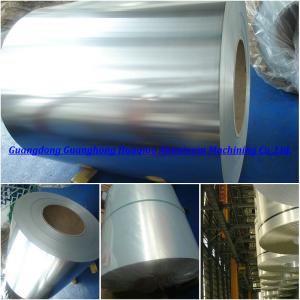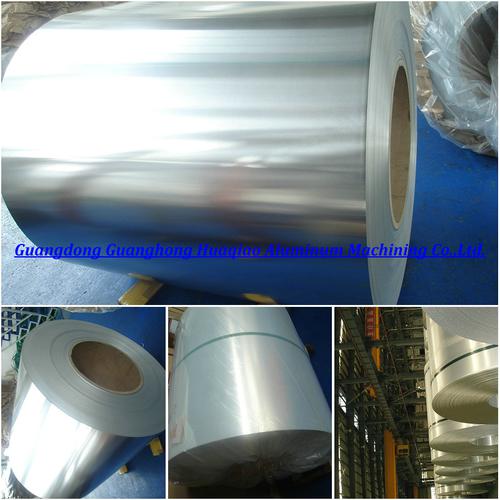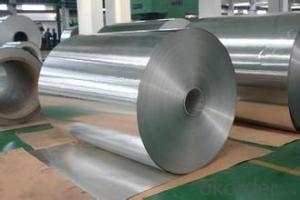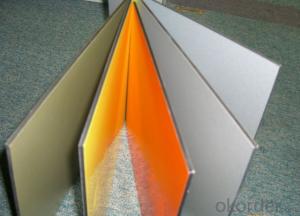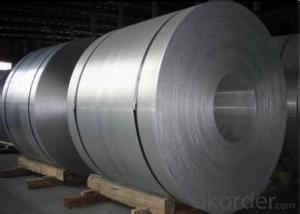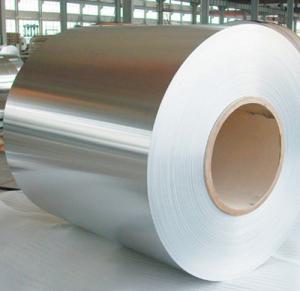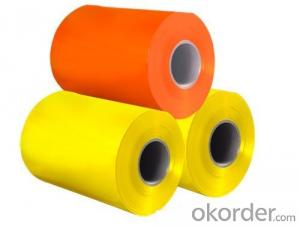Chromated Mill Finish Aluminum Coil Car Aluminum Alloy Metal
- Loading Port:
- China Main Port
- Payment Terms:
- TT OR LC
- Min Order Qty:
- -
- Supply Capability:
- -
OKorder Service Pledge
OKorder Financial Service
You Might Also Like
Color coated aluminum coil is a material with excellentacid-resistance and alkali-resistance. The coating layer is even with brightcolor to last for a very long time. It is a green decoration material with thecharacters of environment protection, flame-resistance, and groovy colors. In nowadays, the color coatedaluminum coil has become the popular material for top grade decoration. With our advance professional aluminum coated technique, wecan custom various aluminum coils ,like coated aluminum coil , Color coatedaluminum coil , embossed aluminum sheet with the color and size which youdemands.
1) Process: pre-treatment, continuous painting and baking for times.
2) Material: high quality material, aluminum sheets from South WestAluminum Industry Company in China, pre-treatment material from Henkel &Chemtell from Germany, more than 70% of PVDF coating from PPG Corp., the USAand polyester from Sweden Becker Industrial Coating Co., Ltd.
3) Our products can keep excellent quality and stability.
4) Thickness: 0.06 - 1.0mm; width: 20 - 1,590mm
Applications:
The aluminum coils are widely used in ACP/curtainpanel/honey comb panel/shutter/roofing and most of the decoration areas. Withthe superior quality and advanced management, our products had been export toEuro/North America /East Asia and many other areas and countries.
| Aluminum-plastic Composite Panel is called for short ACP or APCP. It’s a new material which is made of a series of technological process, the surface is the aluminum sheet of surface treatment and paint coating and the core is polyethylene plastic board.
|
| Aluminum Corrugated Composite Panel is full aluminum alloy composite panel which is composed of aluminum alloy front-panel, bottom plate and corrugated aluminum core vacuum.
SK coated aluminum coil, the surface is coated with PVDF, perfect weather resistance and excellent workability: various processing method of cutting, connect, bending, round bending and others. It is ideal material for aluminum corrugated composite panel. |
| The inside and outside layer of aluminum honeycomb panels are aluminum alloy sheet, intermediate sandwich material is hexagonal aluminum foil honeycomb core, honeycomb core is bonding composed of structural adhesive and aluminum alloy surface layer plate.
SK coated aluminum coil, The surface can be coated PVDF or PE by customer requested colors, the back is epoxy. It is ideal material of aluminum honeycomb panels making. |
| Metal exterior wall insulation board surface is color coated aluminum sheet, and aluminum sheet can be according to design request to choose facing design, color or roll forming for specified grain making, basically for adornment effect, and also have good weather resistance, corrosion resistance and self-cleaning. The middle layer is rigid polyurethane foam with fine warming insulation performance.
SK coated aluminum coil, The surface coated PVDF with perfect weather resistance, and also can be embossed for customer request. It is good choice for exterior wall insulation board manufacturer. |
- Q: What are the manufacturers of color coated aluminium rolls made of aluminium in Jiangsu?
- Jiangsu Dongwu new Mstar Technology Ltd is located in the Yangtze River Delta Jiangnan Industrial City - Changzhou, the company covers an area of more than 10 square meters, the existing standard workshop of more than 50 thousand square meters, is a professional production of color coated aluminum coil, aluminum film, aluminum veneer, aluminum ceiling and other new building materials of the modern enterprise.
- Q: i need to know if Aluminum absorbs radio waves (just the type that control an RC jet)
- Aluminum is a good conductor of electricity. If an object is completely encased in a conductor (forming a Faraday cage), the object will be shielded from radio waves. If the aluminum (or another conductor) covers only part of the object, radio waves may still reach it.
- Q: This question asks if aluminum coils are susceptible to rusting.
- <p>Aluminum coils do not rust in the traditional sense. Aluminum reacts with oxygen in the air to form a thin, protective layer of aluminum oxide on its surface, which prevents further corrosion. This oxide layer is different from rust, which is iron oxide. While aluminum can tarnish or corrode under certain conditions, such as exposure to certain chemicals or harsh environments, it does not rust like iron or steel. Proper storage and handling can help maintain the integrity of aluminum coils and prevent any form of corrosion.</p>
- Q: is Aluminum wrotten with a 2 behnd it?
- No, you're thinking of diatomic molecules like dinitrogen and dihydrogen which come in pairs because forming a covalent bond with another atom fills up their electron shell which is what makes them most stable. Metals don't tend to form covalent bonds in bulk but have a kind of ionic bond. You could search for 'metallic bonding' and I imagine some helpful sites would appear. Basically, the electrons are shared, that's what makes metals conductors of electricity. kind regards
- Q: Can aluminum coils be used in corrosive gas environments?
- Yes, aluminum coils can be used in corrosive gas environments. Aluminum has a natural oxide layer that provides excellent corrosion resistance, making it suitable for various corrosive environments including those with corrosive gases. However, it is important to consider the specific corrosive gas and its concentration, as certain gases may still have a corrosive effect on aluminum over time.
- Q: Hi,I am fairly new to design and have been doing technical drawing for only a few months. We have an item, that supports up to about 800KG of weight, as a C shaped channel. We are currently making this out of 3mm Mild Steel. Due to a new design, we are changing this design to avoid welding and painting the above part. This means we will be making the part from Galv sheet.I would like to make the part from Aluminium because 1) There will be no rust, 2) I think it will look better than Galv sheet but I need to keep the cost down.We use 3mm mild at the moment, because it is easier to weld than 2mm, not for strength really.Therefore, my question is, in everybody's opinion, would it be OK to make it from 2mm Aluminium, or is this likly to end in disaster?FYI, the part is 1600mm long, then on each long side there are presses of up 250mm, down 80mm and down 20mm. The weight is supported at 4 points on the 80mm flanges.What a question for my first go Answers! TIA
- That is actually a complicated question that may need serious engineering. First of all, pure aluminum is rather soft and flexible and you may need to consider an aluminum alloy, perhaps an alloy used in aircraft structures to resists loads. The nature of the load (concentrated or distributed) may affect how the channel tends to bend and the strength needed to resist bending. C channels many tend to bend, shear, twist or buckle and could also fail where loads are applied or at end connections. Likely, mechanical engineers would make a freebody diagram of the channel and study its loading and physical restraints to calculate the strengths needed. Then it is likely a safety factor (10%, 50%, etc. extra strength) would be required depending upon the consequences of failure. If public safety is at issue, calculations should be performed (or checked) by a licensed professional engineer. Because channels (usually) can not be custom made at rolling mills (unless there is a huge order) the next larger available channel in the correct alluminum alloy may be required. Often insurance and product liability demand a correct solution. If the existing mild steel flange works, it (or an assembly drawing) could be presented to show the necessary configuration and help identify possible interferences if channel dimensions must change. Depending upon environment (wet, dry etc.) mixing metal parts may raise corosion concerns. For example, drainage from copper flashings on roofs tends to corode aluminum gutters. Aluminum alloy will likely be more expensive than mild steel and titanium would be stronger and lighter than aluminum (and is now being used in aircrafts) but would be even more expensive. Channel cost may be more important in a large production run than in a one of a kind structure.
- Q: Can aluminum coils be used in high-altitude environments?
- Indeed, the utilization of aluminum coils is feasible in high-altitude settings. Thanks to its lightweight and resistance to corrosion, aluminum is a fitting material for various purposes, including in high-altitude scenarios. Aluminum coils are often employed in air conditioning systems, heat exchangers, and refrigeration units, all of which can operate efficiently at high altitudes. The high strength-to-weight ratio of aluminum enables it to endure the harsh conditions encountered at high altitudes, encompassing low temperatures, strong winds, and low atmospheric pressure. Moreover, aluminum is non-magnetic, providing an advantage in specific high-altitude applications like aerospace and satellite technologies. Additionally, aluminum exhibits exceptional thermal conductivity, facilitating efficient heat transfer and rendering it perfect for deployment in cooling systems functioning in high-altitude environments. Its resistance to corrosion also ensures durability and the ability to withstand the impact of moisture, which can be prevalent in such settings. All in all, owing to their lightweight nature, resistance to corrosion, thermal conductivity, and strength, aluminum coils serve as a dependable and appropriate choice for utilization in high-altitude environments.
- Q: just wondering if you can weld aluminum pipe to a metal pipe for a cars exuast
- i don't see why not becasue volvo uses aluminum exhaust systems.
- Q: How are aluminum coils processed for further fabrication?
- Aluminum coils are processed for further fabrication through a series of steps to transform them into various products. The first step is typically uncoiling the coil to separate it into individual sheets or strips. This can be done manually or through an automated process. Next, the coils undergo a surface cleaning process to remove any dirt, oil, or other contaminants. This is important to ensure proper adhesion and surface finish in the subsequent fabrication steps. The cleaning process may involve chemical treatments, rinsing, or mechanical brushing. After cleaning, the coils are often subjected to a pre-treatment process, such as chemical conversion coating or anodizing. These treatments improve the surface properties of the aluminum, providing better corrosion resistance, enhanced adhesion for coatings, and improved paint adhesion. Once the pre-treatment is complete, the coils are ready for fabrication. This can involve various techniques such as cutting, bending, stamping, or roll forming. Cutting can be done through shearing, sawing, or laser cutting, depending on the required dimensions and accuracy. Bending and forming are commonly used to shape the aluminum coils into desired profiles or structures. This can be achieved through press brakes, roll forming machines, or specialized bending equipment. Stamping is another popular method of fabrication, where the coils are pressed into specific shapes using dies and punches. This technique is commonly used in the production of automotive parts, household appliances, and electronics. Once the desired fabrication is complete, the coils may undergo additional surface treatments or coatings to provide protection or enhance their appearance. This can include painting, powder coating, or applying protective films. In conclusion, aluminum coils are processed for further fabrication through a series of steps including uncoiling, surface cleaning, pre-treatment, cutting, bending, stamping, and surface treatments. These processes allow for the transformation of the coils into various products with the desired properties and characteristics.
- Q: Are aluminum coils suitable for insulation purposes?
- Indeed, aluminum coils are well-suited for insulation purposes due to their exceptional heat and electricity conductivity. This quality makes them a perfect selection for insulation applications. Aluminum coils find utility in a wide range of uses such as HVAC systems, refrigeration units, and electrical wiring. Typically, these coils are coated with an insulating material like polyurethane foam or fiberglass to augment their insulation capabilities. The amalgamation of aluminum and insulation works wonders in impeding the transfer of heat or cold, thereby providing superb thermal insulation. Moreover, aluminum is lightweight, sturdy, and resistant to corrosion, rendering it a dependable choice for long-lasting insulation requirements.
Send your message to us
Chromated Mill Finish Aluminum Coil Car Aluminum Alloy Metal
- Loading Port:
- China Main Port
- Payment Terms:
- TT OR LC
- Min Order Qty:
- -
- Supply Capability:
- -
OKorder Service Pledge
OKorder Financial Service
Similar products
Hot products
Hot Searches
Related keywords
